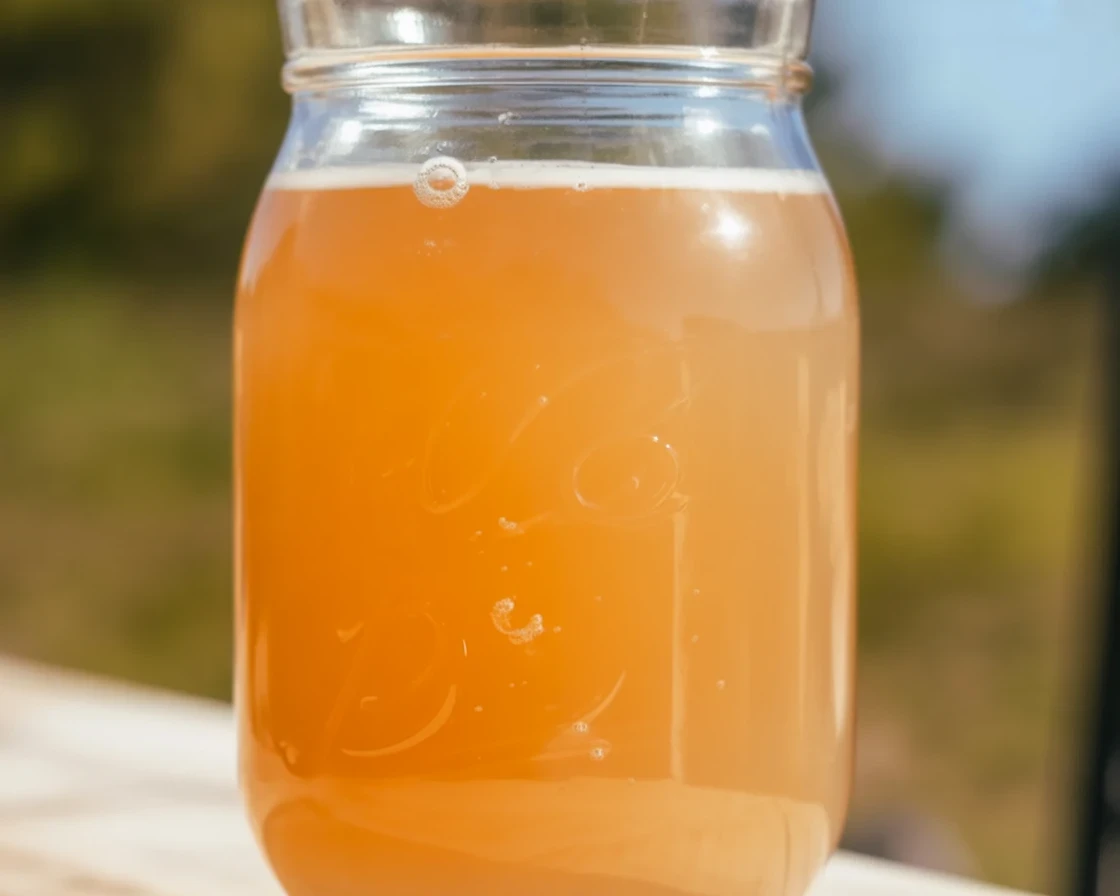Ever get a craving for a drink that’s both crisp and a bit cozy, but you don’t feel like buying a six-pack? Let me tell you, a good hard cider recipe changed the game for me. Yeah, my kitchen has seen its fair share of “uh-oh” moments, but cider is about as forgiving as a pajama day. If you’ve ever baked your own bread (or heck, just tried a rice chocolate cake recipe from the pantry odds and ends) you’ve got the skills for this. It’ll save you a good chunk of change at the store, too. Ready for a glass of autumn you brewed yourself? Here’s how to make hard cider at home the not-scary way. 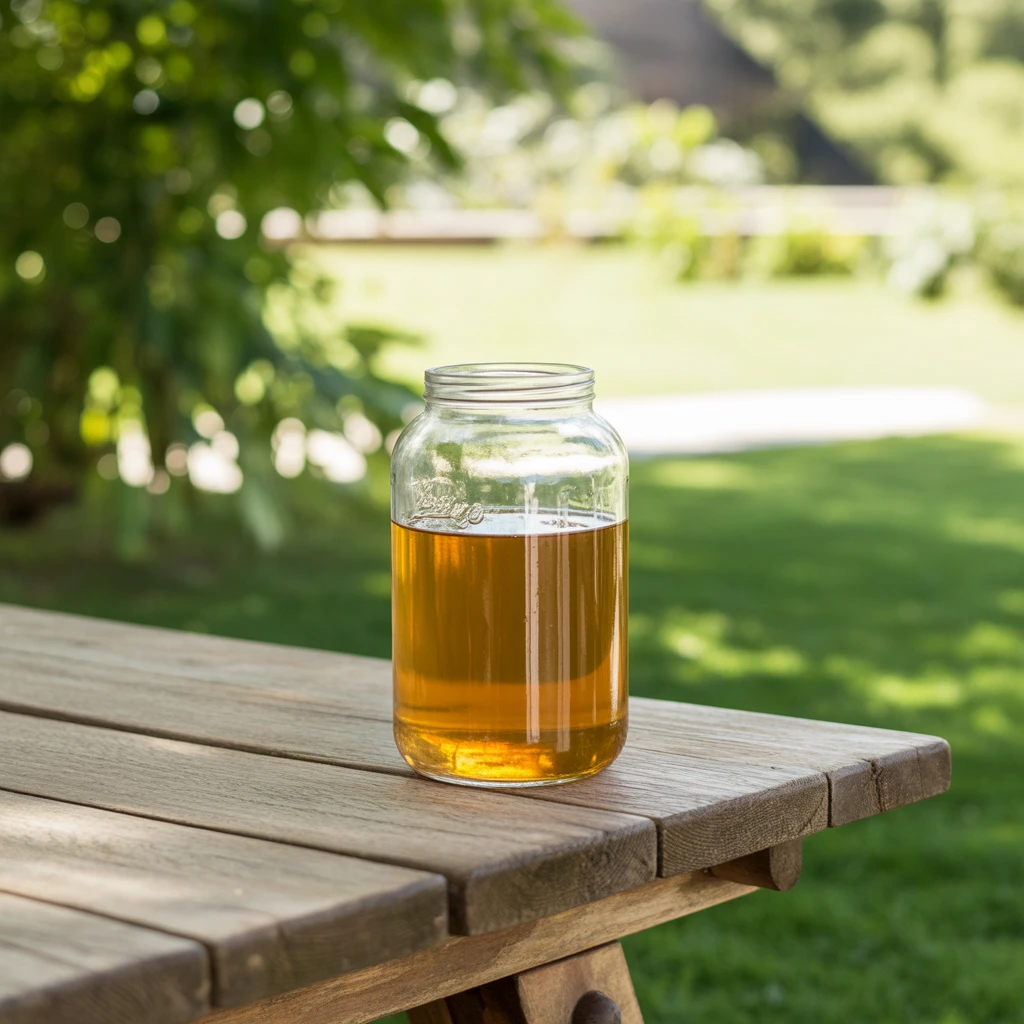
Homemade Hard Cider
Let’s get this out of the way first: making homemade hard cider is not magic or rocket science. The hardest part is, honestly, waiting for the stuff to get fizzy. If you’ve ever forgotten apple juice in the back of your fridge (guilty), you’ve already started the process. The ingredients are simple: fresh apple juice or cider, some yeast, a little patience, and some clean bottles. I know, you’re probably thinking, “Wait, do I need special tools?” Not really, though if you have a jug around, that does the trick.
The cider you get from this isn’t sickly sweet like the store stuff. It’s tart, bright, and you get to decide if it’s dry or a little sweet. Oh, and did I mention your kitchen’ll smell amazing for a few days? My grandma would walk in and say, “Smells like a European harvest festival in here.” No complaints. Honestly, the sense of accomplishment alone is half the fun.
A quick tip before we get going: sanitize your tools. Seriously. Not glamorous, but it’s what keeps your cider from getting “funky” (not the good kind of funky). Think of this as the “washing your hands before you eat” step for adults who like a drink with dinner. 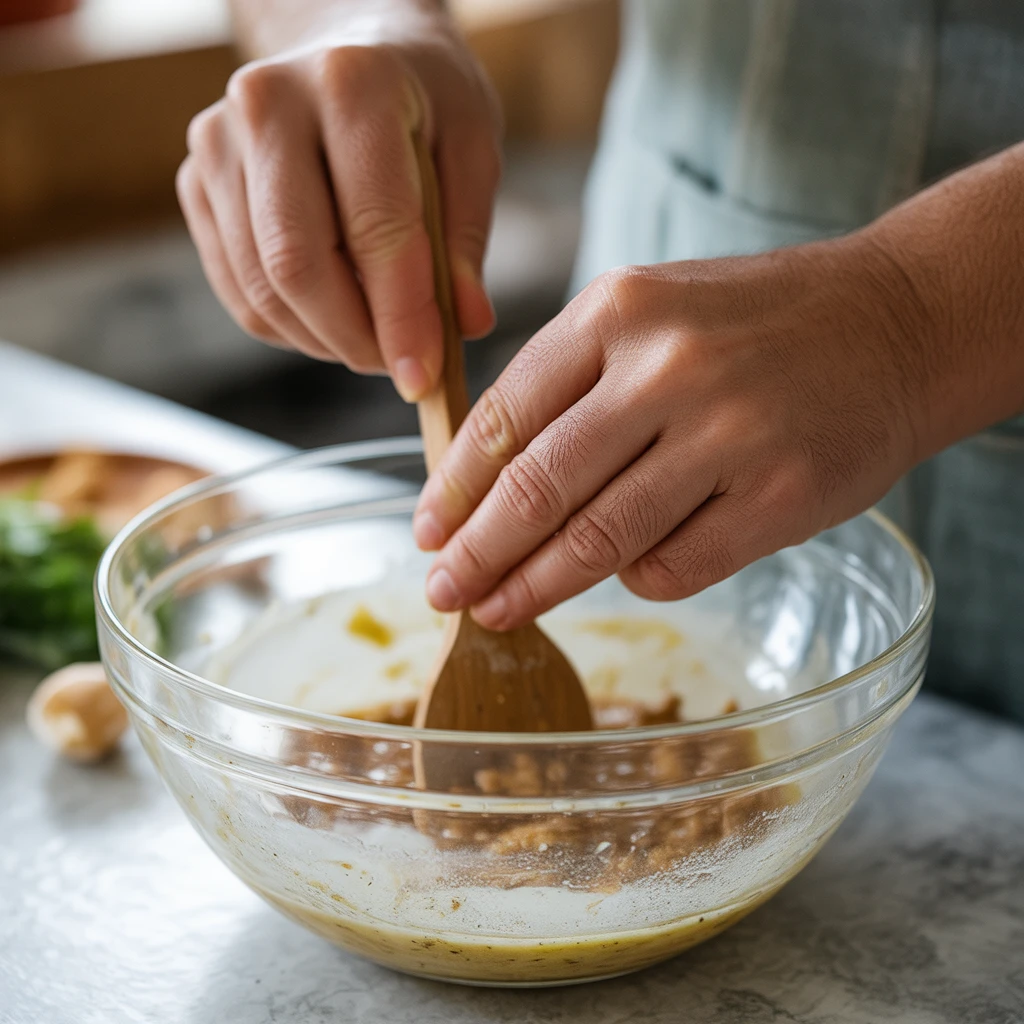
Hard Apple Cider Recipe
Want juicy details? Here’s what you actually need for this hard cider recipe. Just regular apple cider or juice from the store (choose the one that’s just apples if you can, no sugar or preservatives), plus some champagne yeast. That’s it. Don’t let internet experts stress you out—keep it simple if you’re new.
You’ll pour your apple juice into your clean jug, sprinkle yeast on top, and pop a lid with a tiny hole (or a special airlock) on there. Not rocket science. Put the jug somewhere a bit cool and out of direct sunlight. Within a day or so? Bubbling. It’s alive! (Okay, not scary alive. Just yeast doing its thing.)
Now, after about two weeks—sometimes less, sometimes more, depending on temp and your impatience—you’ll notice bubbling slows down. That’s your cue: time to taste. Is it dry and a bit tart? Or did you maybe forget it longer and it’s more like hard cider vinegar? (Been there, still good for salad dressing.)
| Ingredient | Amount |
|---|---|
| Fresh apple juice/cider | 1 gallon (about 4 L) |
| Champagne yeast | 1 packet (5g) |
| Sugar (optional for sweeter taste) | 1/4 cup |
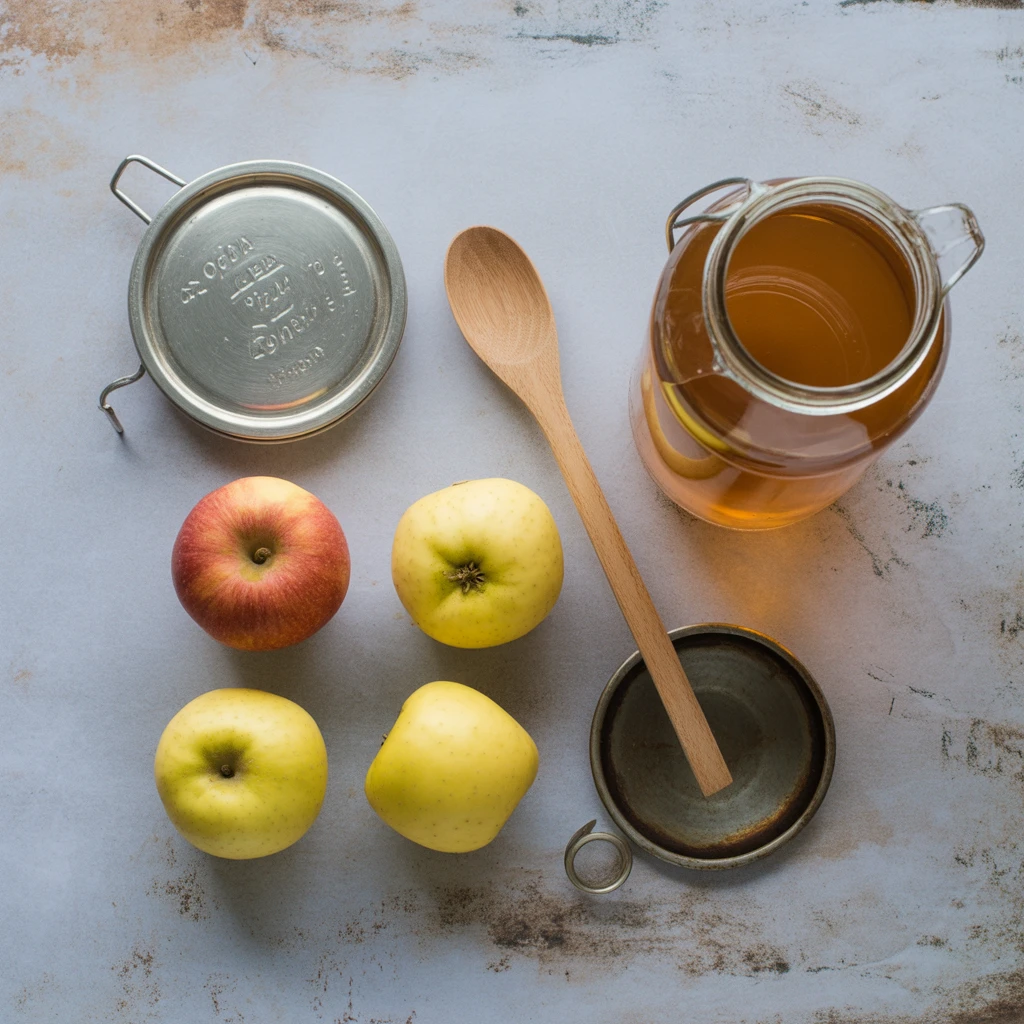
Making Hard Cider in 4 Steps
Alright, here’s the real-life fast guide—because you do not need to complicate this. You’ll love how easy it is!
- Clean everything: Make sure your jug, spoon, bottles—whatever you use—are squeaky clean. Trust me.
- Mix and pitch yeast: Pour your apple juice in. Add yeast (and sugar if you want it sweeter), give it all a gentle stir.
- Ferment: Stick a lid with a hole (or an airlock, they’re cheap) on top. Pop it in a cool spot. Wait about two weeks.
- Taste and bottle: When bubbling stops, taste it. Bottle using sanitized bottles, cap ’em, and let them sit another week or so for natural fizz.
That’s literally it. Four steps. You could totally make cider while waiting for your deer camp venison chili to simmer. Multi-tasking level: legend. 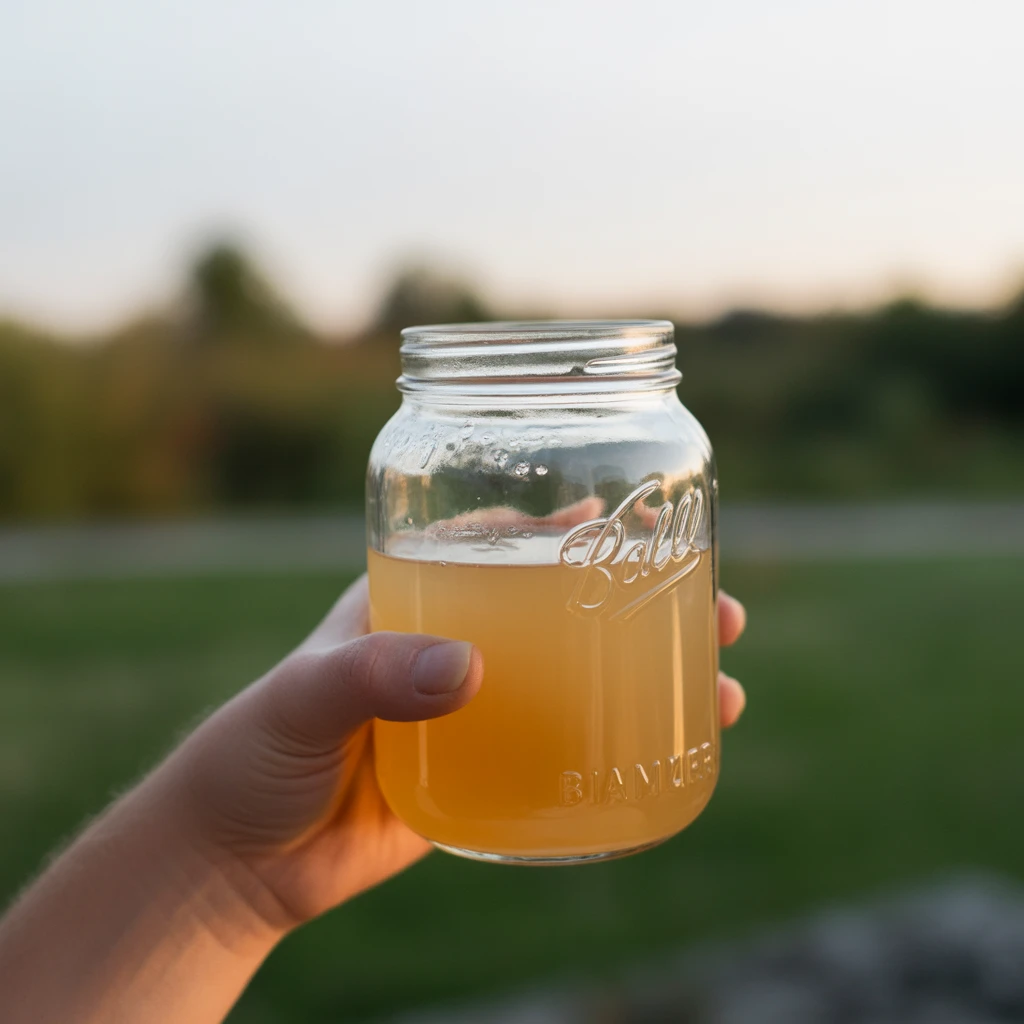
Add Hard Cider Spices – The Perfect Recipe
Cider purists, close your eyes for a sec. Let’s talk spices. I’m absolutely obsessed with tossing a cinnamon stick, maybe a couple of cloves, and even a pinch of nutmeg into the fermenter or, heck, just in the glass afterwards. If you’re feeling bold, a crack of black pepper makes it kind of fancy in that “wait, what’s in here?” way.
Don’t want to overdo it. Start tiny, because some spices go a loooong way. You can even do a little spiced syrup on the side, pour it in the glass as needed. My neighbor claims a splash of vanilla is “life-changing.” I’m not there yet, but it’s definitely a ride. Just remember, homemade hard cider is yours, so tweak away ‘til you hit Goldilocks status.
One time I got wild and tossed in a slice of orange peel—ended up with something that tasted like cider from a five-star restaurant. No joke. Would I do it again? Maybe only for company.
“I never realized making hard cider at home was this easy—and I genuinely liked it more than the canned stuff. I could actually taste the apples, and spicing it up felt like magician work!”
– Lauren, friend and cider guinea pig
Bottling, Kegging and Serving Cider
Once you’ve got your hard cider recipe dialed in, bottling is just about patience. Use any clean glass bottle with a tight cap. Old beer bottles? They work. Some folks use Grolsch-style flip-tops if you wanna go full boho chic. Fill the bottle to about an inch below the neck (don’t fill ‘til overflowing, or boom—sticky kitchen floor). If you want fizz, toss a half teaspoon of sugar in each bottle before capping.
Let bottles sit a week at room temp, then stash them in the fridge. When it’s time to serve—yeah, I drink mine straight from the fridge. Cold, in a pint glass, with or without a cinnamon stick. Cider slushies are also an option on those sweltering afternoons. If you somehow have a keg system, you’re living my dream, but bottles truly do the trick for the rest of us.
Pro tip: label the bottles with a date. It sounds fussy, but future-you will thank past-you if you start doing a cider experiment marathon.
Common Questions
Q: Can I use store-bought apple juice for this hard cider recipe?
A: Yes—just pick juice with no preservatives. Sulfites or potassium sorbate can make the yeast lazy or straight-up quit. If you can find local cider, even better.
Q: My cider isn’t bubbling, help!
A: Double-check your yeast (fresh packet?), your jug (clean?), and your juice (no weird ingredients?). Sometimes it’s just cold in the room, so move the jug somewhere a bit warmer.
Q: How strong will my cider be?
A: Homebrew hard cider typically clocks in around 5% alcohol, maybe a touch more if you add sugar. It’s gotta nice little kick—maybe don’t chug after work.
Q: Can I flavor my cider after it’s done?
A: Absolutely! Drop some ginger slices, berries, or even jalapeño and goat cheese into your glass. You get to be the flavor scientist here.
Q: What’s the shelf life?
A: A few months in the fridge, sometimes up to a year. Mine never lasts that long—friends kind of mooch.
Your New Go-To Happy Hour: Make It Cider
Turns out, homemade hard cider is friendlier than most people expect—even if your only “brewery” experience is making sweet tea. You don’t need fancy gadgets, and the payoff is seriously worth it. Give the process a shot and you’ll be bragging at every backyard BBQ! I always recommend folks check out these awesome guides on how to make hard cider at home for extra tips, or, if you want to chat about favorite flavors, there’s a treasure trove of ideas in the hard cider recipe discussions on Reddit. And hey—if your first batch turns out wild, just call it “artisan.” Trust me, you’ll love the process. 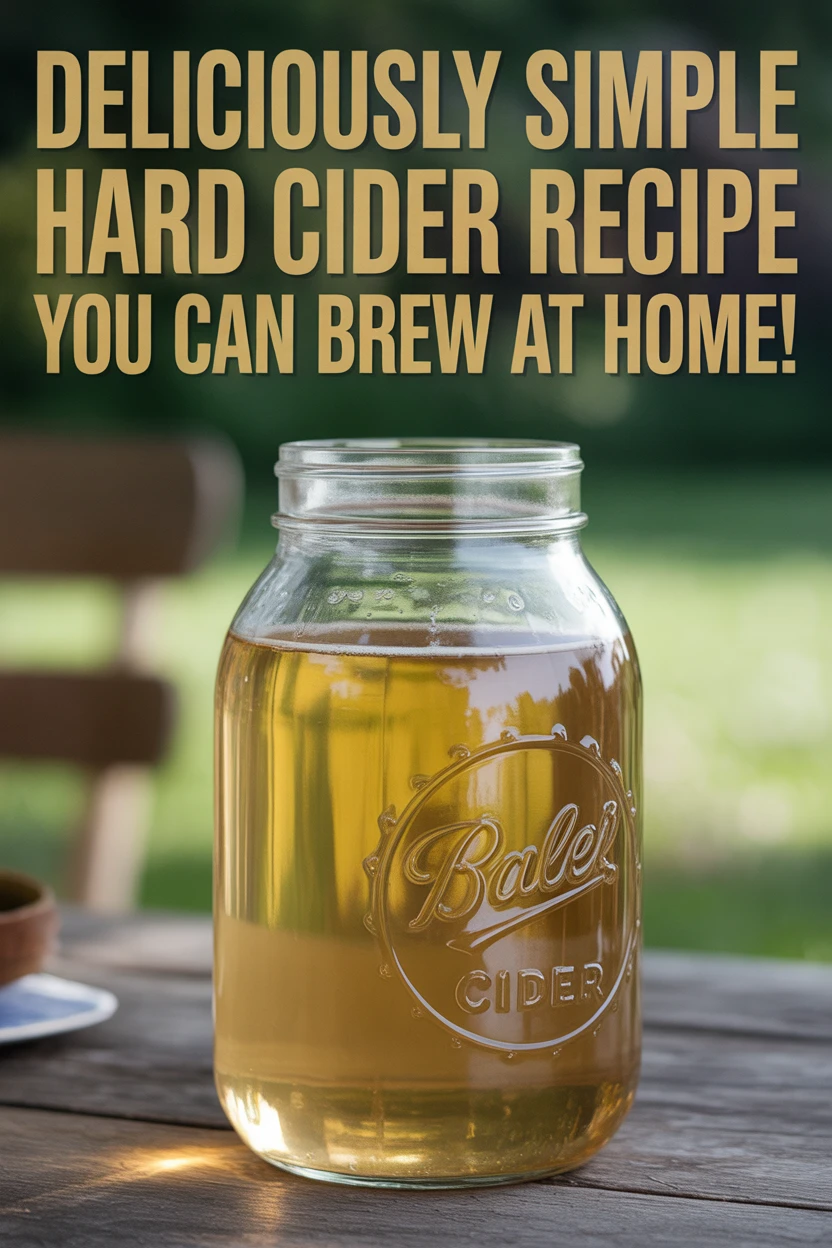
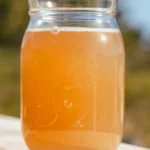
Hard Apple Cider
Ingredients
Main Ingredients
- 1 gallon Fresh apple juice/cider Choose juice with no preservatives.
- 1 packet Champagne yeast
- 1/4 cup Sugar (optional for sweeter taste) Use only if you prefer a sweeter cider.
Instructions
Preparation
- Clean everything: Make sure your jug, spoon, and bottles are squeaky clean.
- Mix and pitch yeast: Pour apple juice into your clean jug. Add yeast and sugar if desired, then gently stir.
- Ferment: Cover the jug with a lid that has a small hole or use an airlock. Place it in a cool, dark spot and wait for about two weeks.
- Taste and bottle: When bubbling stops, taste the cider, then use sanitized bottles to bottle, cap them, and let them sit for another week for carbonation.

